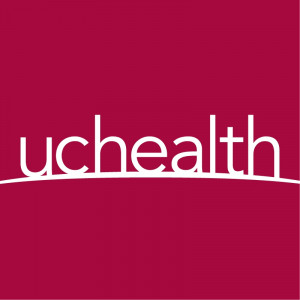We are recruiting for a motivated Registered Nurse, Outpatient Behavioral Health Services (OBHS) - PRN to join our team!
We are here for life’s journey.
Where is your life journey taking you?
Being the heartbeat of Denver means our heart reflects something bigger than ourselves, something that connects us all:
Humanity in action, Triumph in hardship, Transformation in health.
Department
Substance Use Disorder OperThe following positions within Inpatient Adolescent Psychiatry, Inpatient Adult Psychiatry, Psychiatric Emergency Services, CARES, and Outpatient Behavioral Health Services are offering the opportunity to enroll in a new program offering a cash incentive to recognize your work treating patients with substance use disorders. This program is sponsored through the ACCESS (Advancing Careers, Competencies, and Equity in Substance Treatment Services) grant. Employees must be >0.6 FTE to be eligible. 50% of the bonus will be received 90 days after signing the program contract.
· Registered Nurses (RNs) may earn up to $7,500 by December 2024
· Behavioral Health Technicians (BHTs) may earn up to $3,500 by December 2024
· Care Navigators may earn up to $3,500 by December 2024
Job Summary
The Outpatient Behavioral Health Services (OBHS) Nurse plays a crucial role in supporting and advocating for individuals undergoing treatment for opioid use disorders. Working closely with healthcare providers, the OBHS Nurse helps implement and manage medication-assisted treatment plans, ensuring the safety, well-being, and recovery of patients. This role requires a deep understanding of opioid addiction, pharmacology, crisis intervention, behavioral health, medical comorbidities, and nursing principles.
Nurses work within a free-standing facility delivering care to a patient population diagnosed with severe opiate use and the co-occurring factors of social impairment, high risk behavior, and both physical and psychological concerns. OBHS employs a high level of security, which impacts daily working conditions, including both personal and institutional safety and clinical operations. Environmental awareness, independent, critical thinking, and decisive, decision-making skills are required in the OBHS ambulatory care setting. Nurses are trained in trauma and therapeutic response, verbal de-escalation, addictions medicine, and Motivational Interviewing to provide whole person care.
Under general supervision, the professional nurse adheres to the American Nurses Association (ANA) standards of professional nursing and performance, and the ANA Code of Ethics to provide care to all healthcare consumers. Applies critical thinking, evidence-based practices, and competence to collaborate with the health care team to promote excellence in healthcare consumer safety and quality outcomes. Utilizes the Theory of Human Caring and Caritas in daily practice. "Jean Watson, PhD, RN, AHN-BC, FAAN, Founder / Director, Watson Caring Science Institute."
Essential Functions:
- Patient Assessment:
- Conduct thorough assessments of patients to determine eligibility and appropriateness for medication-assisted treatment. Collaborate with the healthcare team to obtain comprehensive patient histories, including substance use, medical, and psychiatric history. (30%)
- Treatment Planning:
- Develop individualized medication-assisted treatment plans in collaboration with physicians and other healthcare providers. Educate patients on the benefits, risks, and expectations of medication-assisted treatment. (5%)
- Medication Administration:
- Administer and monitor medications used in medication-assisted treatment, such as methadone, buprenorphine, or naltrexone. Monitor and manage potential side effects, adverse reactions, and drug interactions. (20%)
- Monitoring and Documentation:
- Regularly assess and document patient progress, including changes in physical health, mental health, and substance use. Maintain accurate and up-to-date electronic health records, ensuring compliance with confidentiality regulations. (5%)
- Patient Education:
- Provide education to patients and their families about opioid use disorders, medication-assisted treatment, and recovery. Offer counseling and support to help patients navigate the challenges of recovery. (10%)
- Collaboration and Communication:
- Collaborate with physicians, therapists, social workers, and other healthcare professionals to ensure coordinated and comprehensive care. Communicate effectively with patients, addressing their concerns and fostering a supportive and therapeutic relationship. (5%)
- Crisis Intervention:
- Respond promptly and effectively to crises or emergencies related to opioid use disorders. Implement crisis intervention strategies and coordinate with the healthcare team to provide appropriate care. (15%)
- Quality Improvement:
- Participate in quality improvement initiatives to enhance the effectiveness of medication-assisted treatment programs. Stay informed about the latest research and developments in opioid addiction and medication-assisted treatment. (5%)
- Policy and Procedure:
- Assists in the creation, evaluation, and ongoing review of existing clinical practices and policies. Monitors and reports on changing internal or external critical incidents and diversion that impact OBHS and Denver Health policy. Recommends and implements changes to practice and policy based on those observations. (5%)
Education:
- Minimum of an Associate's Degree in Nursing required.
Work Experience:
- 1-3 years experience in a direct patient care setting required.
- Work in outpatient clinics, psychiatric emergency services, mobile narcotic units, or triage department preferred.
Licenses:
- RN-Registered Nurse - DORA - Department of Regulatory Agencies required.
- BLS-Basic Life Support (BLS/CPR) - AHA - American Heart Association required.
Knowledge, Skills and Abilities:
- Psychiatric Nursing: Understanding of psychiatric disorders, including substance use disorders, and the ability to assess and manage mental health issues.
- Pharmacology: In-depth knowledge of medications used in MAT, such as methadone, buprenorphine, and naltrexone, including their mechanisms of action, side effects, and potential interactions.
- Addiction Medicine: Knowledge of evidence-based practices in addiction treatment, including behavioral interventions, counseling techniques, and harm reduction strategies.
- Crisis Intervention: Understanding of crisis intervention techniques and the ability to respond effectively to emergencies, including overdose situations.
- Trauma-Informed Care: Familiarity with trauma-informed care principles to create a safe and supportive environment for individuals who may have experienced trauma.
- Cultural Competence: Awareness and sensitivity to cultural factors that may influence a person's experience with behavioral health issues and substance use disorders.
- Legal and Ethical Considerations: Knowledge of relevant laws, regulations, and ethical guidelines related to behavioral health and addiction treatment.
- Collaborative Care: Ability to work collaboratively with a multidisciplinary team, including physicians, therapists, social workers, and other healthcare professionals.
- Empathy and Compassion: Ability to empathize with individuals facing behavioral health challenges and demonstrate compassion in providing care.
- Adaptability: Flexibility and adaptability in responding to the dynamic needs and challenges of individuals in recovery.
- Problem-Solving: Ability to assess complex situations, identify problems, and develop effective solutions to support individuals on their recovery journey.
- Resilience: Emotional resilience to cope with the emotional demands of working with individuals facing behavioral health and substance use disorders.
- Advocacy: Advocacy skills to ensure individuals have access to appropriate resources, treatment, and support services.
Shift
Days (United States of America)
Work Type
PRN/Intermittent
Salary
$32.77 - $50.79 / hr
Benefits
- Social security replacement retirement plan with employer contribution of 3%
- On-site employee fitness center and wellness classes
- Community resource navigation support
- Childcare discount programs & exclusive perks on large brands, travel, and more
- Education & development opportunities including career pathways and coaching
Our Values
- Respect
- Belonging
- Accountability
- Transparency
All job applicants for safety-sensitive positions must pass a pre-employment drug test, once a conditional offer of employment has been made.
Denver Health is an integrated, high-quality academic health care system considered a model for the nation that includes a Level I Trauma Center, a 555-bed acute care medical center, Denver’s 911 emergency medical response system, 10 family health centers, 19 school-based health centers, Rocky Mountain Poison & Drug Safety, a Public Health Institute, an HMO and The Denver Health Foundation.
As Colorado’s primary, and essential, safety-net institution, Denver Health is a mission-driven organization that has provided billions in uncompensated care for the uninsured. Denver Health is viewed as an Anchor Institution for the community, focusing on hiring and purchasing locally as applicable, serving as a pillar for community needs, and caring for more than 185,000 individuals and 67,000 children a year.
Located near downtown Denver, Denver Health is just minutes away from many of the cultural and recreational activities Denver has to offer.
Denver Health is an equal opportunity employer (EOE). We value the unique ideas, talents and contributions reflective of the needs of our community.
Applicants will be considered until the position is filled.









